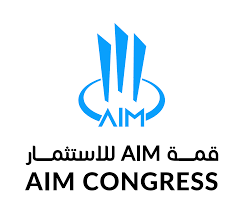
Small and medium-sized enterprises (SMEs) are the growth engine of many economies, but it can be a challenge for them to expand internationally and integrate into global value chains.
SMEs account for around 99% of companies and 70% of all jobs in OECD countries, and they contribute more than 50% of gross domestic product in high-income countries worldwide, according to a 2022 McKinsey report titled Beyond financials: Helping small and medium-sized enterprises thrive.
“To grow, SMEs need to be able to expand internationally beyond their home market,” says Walid Farghal, director-general of the Annual Investment Meeting (AIM) Congress.
Held annually in Abu Dhabi, the AIM Congress is a platform for investors, businesses and government entities to discuss the world’s biggest challenges and engage with each other to find solutions.
“It is often difficult for SMEs to scale without the right support from governments and access to technology that can help them tap into markets further afield,” Farghal continues.
UN research from 2022 on the effect of the fourth industrial revolution on SMEs finds that major barriers to international expansion include an inability to benefit from economies of scale as easily, greater difficulty in accessing financial resources, and a higher likelihood of being burdened by bureaucracy and poor infrastructure.
“Even before the Covid-19 pandemic, high-potential SMEs in many markets found success domestically, but their potential was capped by the size of their local market,” McKinsey analysis finds.
The pandemic hit SMEs hard, setting back export growth. In mid-2020, McKinsey analysis found that 45% of small businesses were facing supply chain disruptions, which hindered their ability to export products and integrate into global value chains.
Advanced technologies such as artificial intelligence, data analytics, blockchain and automation are crucial in helping SMEs grow, ultimately claiming space in global value chains and further bolstering the economies of their host countries. However, the adoption of such advanced technologies often requires substantial financial investment and expertise, posing a challenge for SMEs with limited resources. Recognising this barrier, government support becomes paramount in facilitating SMEs’ access to these transformative technologies. Through funding initiatives, training programmes and strategic partnerships, governments can empower SMEs to harness the benefits of cutting-edge tools, fostering innovation and propelling international expansion.
Using South Korea as a case study, the UN research shows that compared with large companies, the South Korean SMEs that adopted Industry 4.0 technologies such as digital tools were more likely to invest and expand overseas.
Getting SMEs back on track with government support
Access to digital tools can enable small companies to scale their business internationally and reach new markets. To support SMEs during the pandemic, governments in Ireland, Japan, Malaysia, Singapore, South Korea, Spain and beyond rolled out grant and loan programmes. Subsidised access to digital tools was also available to help small companies move online, according to a blog post from Yale’s Program on Financial Stability titled Governments Encourage SMEs to Adopt New Technology.
What began as a lifeline during the pandemic is continuing today as SMEs realise the full potential of adopting digital tools, but with small budgets common, government support via funding and other programmes is critical.
One example is the United Arab Emirates’ National SME Programme, established in 2014. It relaunched in 2022 with new services to help accelerate SMEs’ growth in the wake of the Covid-19 pandemic.
AIM Congress powering SME growth
Each year, SMEs from around the world are invited to the AIM Congress in Abu Dhabi where they can meet and learn from like-minded professionals and engage in discussions on the latest trends in technology, innovation and investment.
At the AIM Congress in the UAE, SMEs from around the world will come together next year alongside government, corporate and technology leaders to discuss better support for small and medium-sized companies.
With six core pillars, which also include foreign direct investment, start-ups, future cities, foreign portfolio investment and digital economy, the AIM Congress provides a platform for networking and partnership building across multiple sectors. For SMEs, it is an environment where they can showcase their business ideas and network to find new business prospects, financing sources and access to new international markets.
To learn more about what to expect at this year’s AIM Congress, download the free brochure here.


